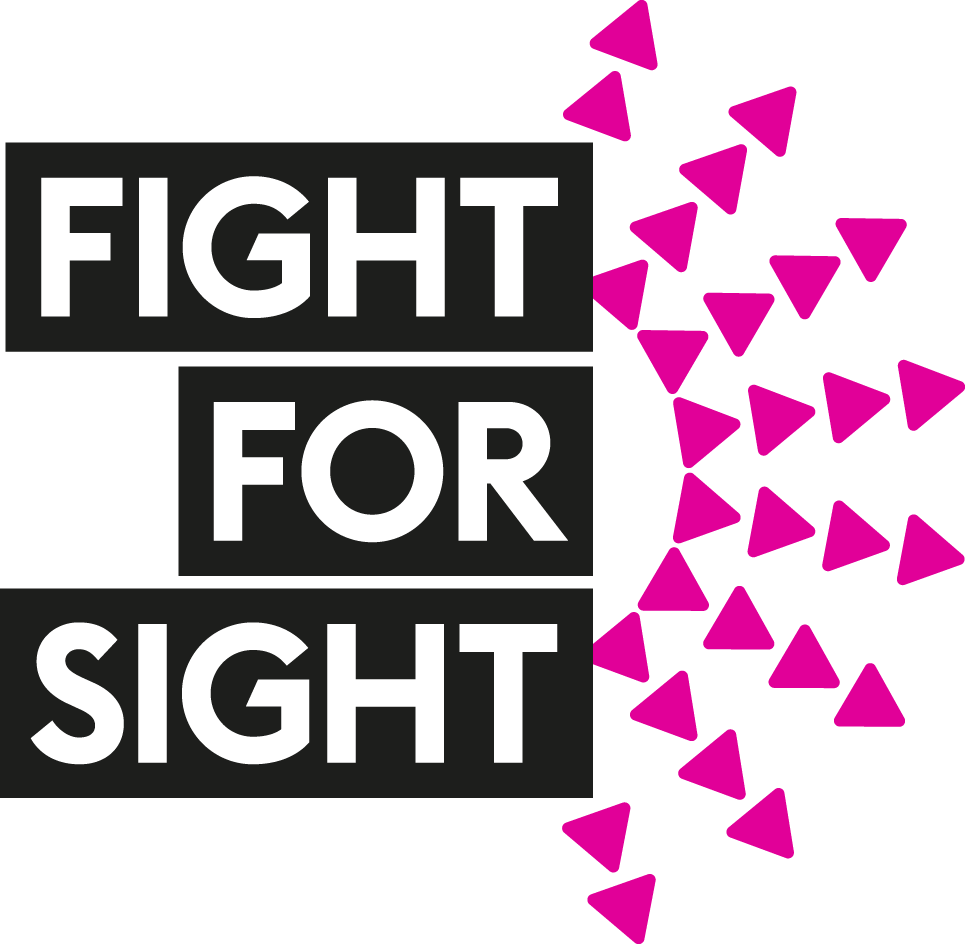World Wellbeing Week 2023: Working to improve wellbeing for people who are blind and visually impaired
The last week in June is #World Wellbeing Week, an opportunity to raise awareness of the different elements of wellbeing. At Fight for Sight/Vision Foundation, we're working to save sight and change lives and are committed to considering the wellbeing of everyone affected by sight loss.

By Keith Valentine, CEO of Fight for Sight / Vision Foundation
The last week in June is World Wellbeing Week, which is an opportunity to raise awareness of the different elements of wellbeing, including:
- Career wellbeing,
- Community wellbeing,
- Environmental wellbeing,
- Emotional wellbeing
- Financial wellbeing,
- Physical wellbeing.
This holistic approach to wellbeing chimes perfectly with Fight for Sight/Vision Foundation’s mission to save sight and change lives. We aim to stop sight loss and change lives by investing in research that can cure eye disease and incubating innovative social programmes that drive equity for blind and visually-impaired people.
Our report, Time to Focus, underlined the need to answer these urgent questions.
Sight loss is underfunded compared to other disease areas; people who are visually impaired or blind are more likely to be unemployed, disabled people experienced more loneliness and isolation during the pandemic (and in general) and were more worried about the pandemic’s impact on their wellbeing.
During the pandemic, rates of domestic violence escalated. Blind and visually-impaired people face additional challenges in getting the help and support that they need.
- Read more about our Unseen campaign and our recent round table discussing domestic violence.
Funding Visual Impairment
More recently, a report by NPC, conducted a landscape review 'Funding Visual Impairment'.
The report said: “Our vision is the sense we fear losing the most— three-quarters of us would rather lose a limb than our sight. And no wonder, as visually impaired people are more likely to experience isolation, depression, unemployment, discrimination, and poverty.”
It is informed by research and interviews with influential leaders, including our Director of Development, Ranjeet Kharé (BEM) and Director of Research, Madina Kara.
The report’s aim is to help funders better target their giving – to deliver impact. It uncovered six focus areas where philanthropic giving could make a difference. The first three bring out the key issues at three different life stages; the final three are relevant to all stages of life.
The six areas the NPC report lists are:
- Children and young people
- Working-age adults
- Older people
- Mental health and isolation
- Disabilities and learning difficulties
- Medical research
Save Sight, Change Lives
As a grant-making organisation, we invest in research and incubate social programmes so that we can save sight and change lives.
Our investments cover all stages of a person’s life – and all aspects of wellbeing.
We invest in research that targets inherited diseases, which impact children and young people. Plus, we’re investing across a range of eye disease areas. We invest in early career researchers growing a community of experts dedicated to stopping sight loss, and we work in partnership with other charities, organisations and funders to deliver results.
The impact of sight loss on children and young people is significant. It can significantly impact mental health.
We recently collaborated with Shout, which offers a free, 24/7 text service for blind and partially sighted people to speak about how they are feeling and receive support in finding the next steps.
Some 75% of blind and visually-impaired people are unemployed. We are determined to change this. We’ve already worked with Croydon Vision in the area of employment. As an organisation, we believe we need to be the changes we want to see. I am proud that 50% of our Executive Leadership team is blind or has a visual impairment following the appointment of Ellie Southwood as our Director of Social Impact.
I am proud to be one of the few blind leaders working in the sight loss sector.
But I am in the minority, and we can and must do more. Employment is critical to wellbeing and to securing financial independence.
The shift to hybrid working has empowered some disabled people, but there is also evidence that the Reasonable Adjustments mandated by law got left behind in the office for some.
Research for an Ageing Population
As an ageing population, the burden of eye disease on the healthcare system is increasing. Eye conditions cost the UK economy a staggering £25.2 billion a year. That’s more than the combined annual expenditure of the Home Office and the Ministry of Justice. And we estimate this cost will rise to £29.9 billion a year by 2030 and £33.5 billion a year by 2050.
We can save money by reducing the prevalence of age-related eye disease in the UK. Reducing age-related macular degeneration by 1% yearly could save £1.2bn. Likewise, reducing glaucoma by 1% could avoid £325m costs to the UK economy.
- Read five research projects we’re funding on age-related macular degeneration.
Plus, as the workforce ages, we must ensure employers implement reasonable adjustments as individuals’ needs change.
The coming together of Fight for Sight /Vision Foundation means that we offer a unique proposition as a grant maker with a mission to solve two urgent questions:
- How do we prevent sight loss?
- And how do we empower people with sight loss to live their lives as equal citizens?
As a growing mission-driven community of blind, visually impaired, and sighted people, we are on the move. We are determined to achieve equity in society for people with sight loss.
We continue to gather evidence and welcome NPC’s report as a rallying cry for the need to invest in the need to fund all areas relating to visual impairment.

